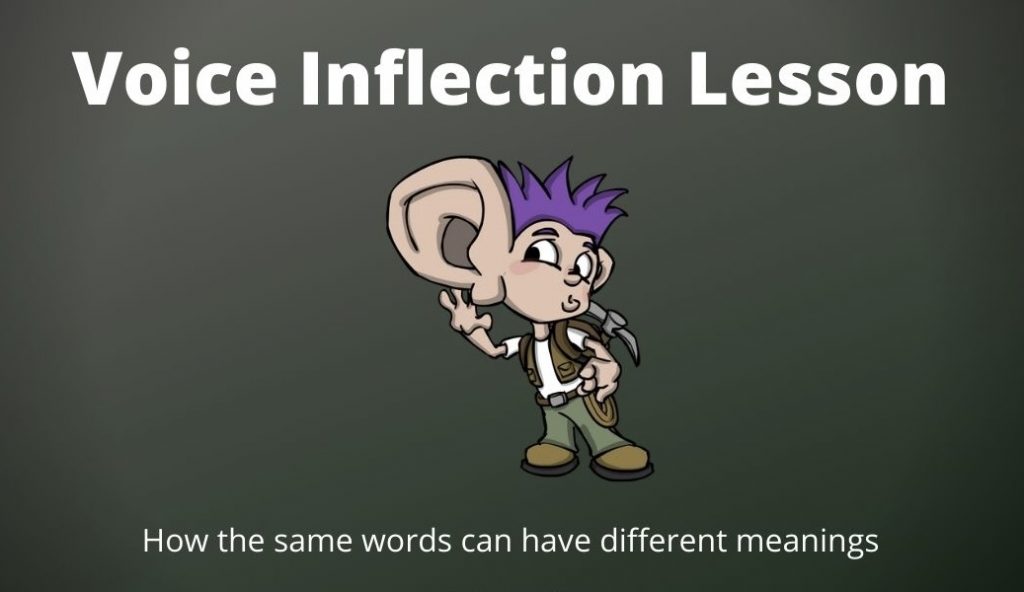
Inflection in voiceover, and therefore in everyday speech, happens all day long. Our speech patterns sound like a rollercoaster, and if you’re a sound engineer staring at that screen filled with wavy lines all day, it looks like one too. We almost can’t speak in monotone as it’s not our inclination. The vocal chords want a natural rising and falling to rest and recover from their opposite. We also subconsciously hit these high and low notes as a way to lead in to or emphasize important points in a conversation. It’s high time we made this a conscious act, in order to communicate exactly what that decision-maker in the audition call is looking for in the performance. And that would be CONNECTION. If you don’t emphasize the right words in the right way, you aren’t sounding connected to the script, and therefore it is sounding “read.” Onwards to the solutions!
Voice acting requires the same level of connection that any other type of acting does…understanding the text and how you will convey it emotionally. Let’s start with the text and the specific words that need to have inflection consideration. Best done by a few examples.
“I’m thinking of starting a business.” In this sentence your keyword is business. This is the word you end with a falling inflection. A deep or lower inflection. Because it’s a two-syllable word you should think of it as the “Biz” sound going up, and the “ness” sound landing down. Why? The final moment of any word is the final impression we leave. If it’s an important word, we end it on a downward note. It sound important. Final. The final say in the matter. The words thinking and also starting are both what i would call Leading words. They lead into the important stuff, they are not the final say. So you would never end them with a falling inflection because it will sound like you’re “done.” If you go up on them right away it sounds like you’re highlighting the important of it, so you don’t want to do that. Think about every leading word and keyword combination like this – the way we say “THE END.” We go up on The, because it isn’t important, it’s just leading us INTO what IS important. We go down on End because that word speaks to the point we are making – that something is completed. Is your head hurting yet? Mine is. So, think of the ING in Thinking and Starting as and extended version of “The” and the BIZ as “End.”
Oh for crying out loud this is nuts. Stay tuned and I’ll get a video demonstration up!
The end.


 Hi! I’m Lesley Bailey. I’m an award-winning Casting Director, Voiceover Coach, Demo Producer, and Consultant with over 30 years “in the trenches”. I love helping voice actors bring scripts to life with authenticity and confidence.
Hi! I’m Lesley Bailey. I’m an award-winning Casting Director, Voiceover Coach, Demo Producer, and Consultant with over 30 years “in the trenches”. I love helping voice actors bring scripts to life with authenticity and confidence.